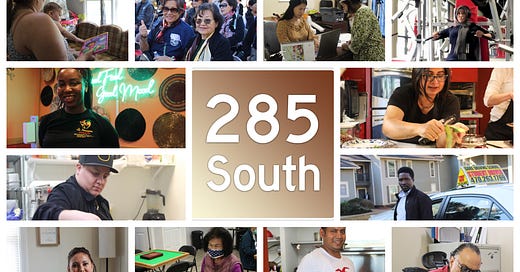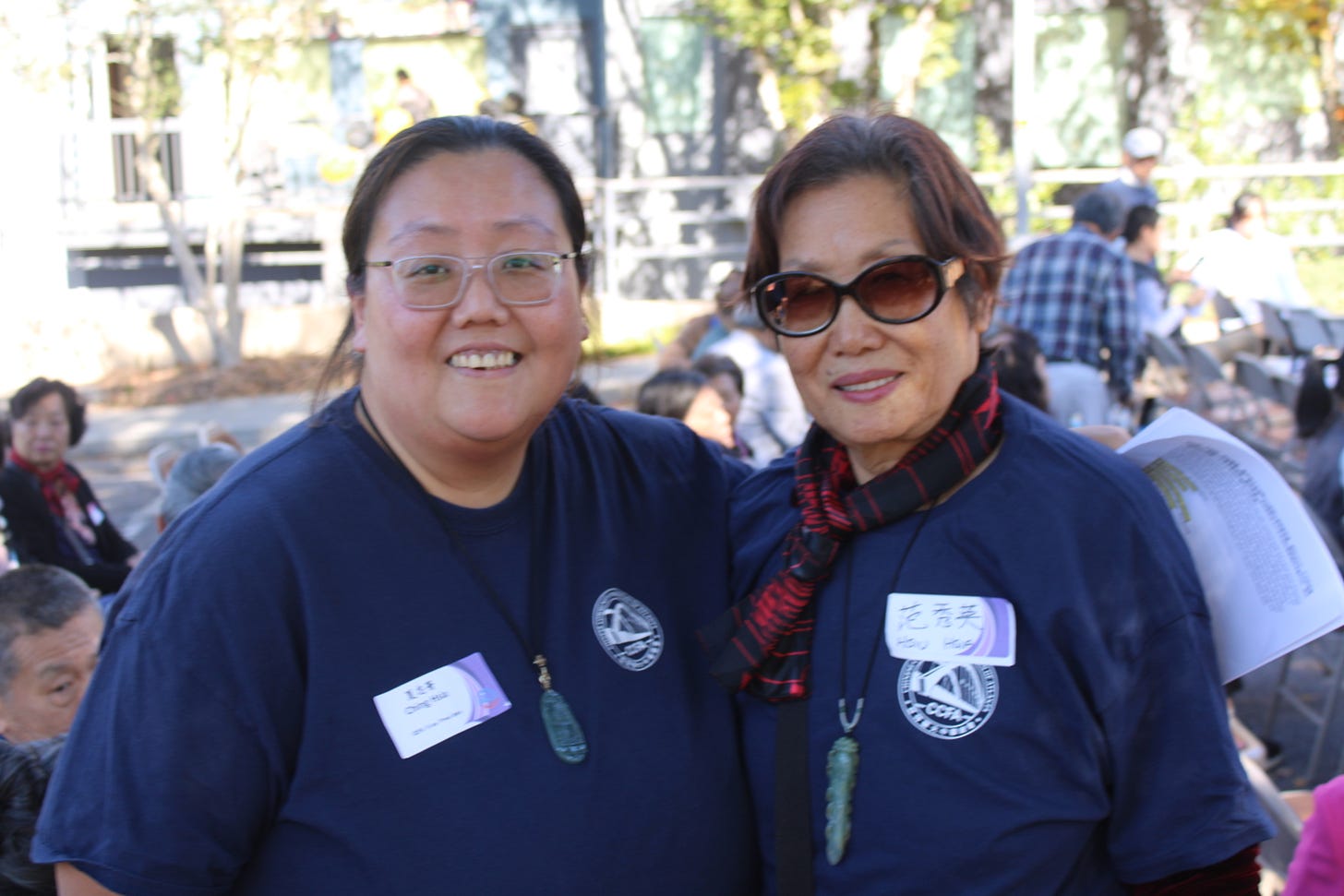As 2023 comes to a close, a look back at the year.
Yes this is an end of the year highlights email :)
Dear 285 South readers,
Almost without fail, I have the same thought at this point of every year: Crap! How did a year just fly by? And wait, what were my new year’s resolutions again?
I can’t answer either of those questions, but I do know that last December, I was resolved to keep 285 South going. That’s happened, thanks to your reading and to Canopy Atlanta’s belief in the importance of these stories. As we close out 2023, I wanted to share highlights from the past year: stories of some of the people who have opened my eyes to new ways of seeing things (and I hope yours).
Lastly - I am excited to say that 285 South will be *growing* in 2024. Stay tuned for more on that in the new year.
Until then, happy, happy holidays,
Sophia
Filling in gaps - being there for fellow community members, whatever the cost.
The investigation into the Center for Pan Asian Community Services (CPACS), and the organization’s loss of funding in 2023 meant that there was a major gap in social services for Asian communities in Metro Atlanta. 285 South tracked that gap by spending time with people who were filling it.
Veronica Zhang, a former employee at CPACS, continued to support fellow Burmese community members even after she lost her job. “People from the community have my phone number…they keep calling me, they need help.”
I will never forget what she told me about what motivates her. She said that the words of her mother, who died of cancer in 2016, are in her mind when she is working. “She always said, my daughter…whenever you talk to people, especially to uneducated people, be patient. Serve them as much as you can. Like you talk to me, like you helped me, like you take care of me, treat everybody like me.” Read more about her and her new nonprofit Home of Helping Hand.

Finding a new ‘home’ for Asian seniors
Another person I met this year was Anna Tam. She also used to work for CPACS, but when the organization cut programs for seniors, she lost her job. She knew how important it was for seniors to gather - not only for the physical heath of seniors but also their emotional health. Anna was determined to find a new space for them. 285 South reported on the loss of the programs in April, and the good news that followed months later.

I also met Ching Hsia, and her mother Hsiu. Ching had told me how important CPACS had been for her mom, especially after her dad died. “This program helps bring her up…to have something to do and look forward to, instead of sitting home and just thinking about my dad,” she said. When I saw them both at the grand opening celebration of the new space, the joy was palpable. Hsiu had a big smile on her face and was passing out cookies to all the attendees.
Highlighting language barriers at the Georgia Department of Driver Services Leads to Impact
In early 2023, I had a conversation with Shaista Amani. She had been supporting folks from Afghanistan and Ukraine with getting their lives started here, and was frustrated with how hard the path to getting a driver’s license was, especially for those who spoke Dari and Ukrainian. Through the reporting process, we learned about a live translator option for those taking the permit test, and the Georgia Department of Driver Services added Dari to the language options for the test.
"It is like a dream come true for me, I can't imagine how many lives this will change,” Shaista had told me, after learning of GDDS’s plans to add Dari to its list of language options. I joined her when she took her mom, as well as several other Afghan women, to take their permit tests. Her mom emerged from the test booth beaming, “It was easy,” she said.
Over the past year, I’ve gotten to know Shaista, who now works at the Afghan American Alliance of Georgia. I’ve seen just how many lives she impacts single-handedly through her extraordinary ability to spot gaps, articulate them, and advocate for people in her community.

The war in Gaza hits home.
The scale of violence in Gaza is like nothing we’ve seen in our lifetimes. In the past few months, I’ve witnessed the impact the ongoing war has had on Metro Atlanta residents on multiple levels. I’ve been especially struck by how the daily reports of deaths out of the region have been impacting the mental and emotional health of young people.
Like an 11-year-old Palestinian-American girl I met, who lives in Duluth. She was struggling to be present in her life here. Going to school was hard. “How can math or geography help people who are dying?,” she said. And seeing the grownups around her in a state of grief has been even harder. “It’s hard when adults are sad. Everyone is so sad. Hard to see parents sad. I want adults to understand I know what they’re going through. I want to be there for the adults.” Read the story here.








